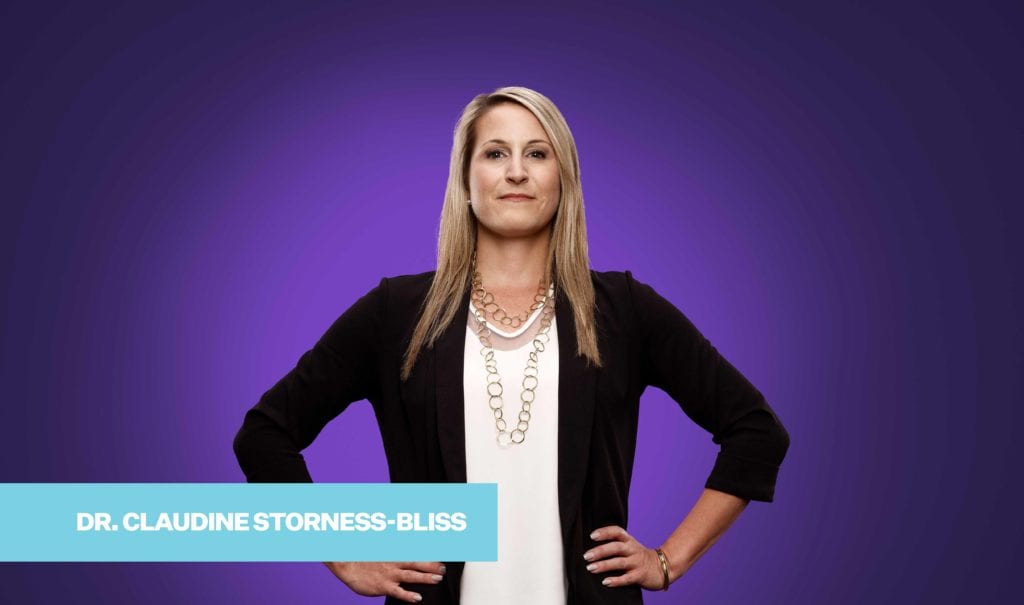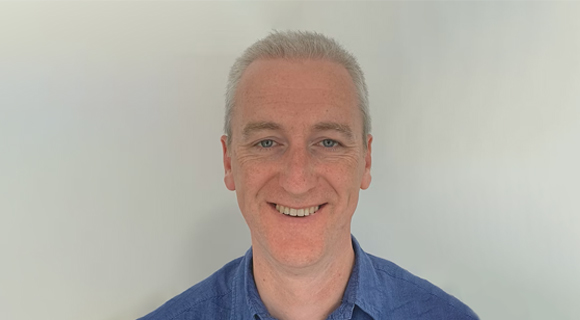
Sitting on a faux leather sofa in the Family Birthing Unit doctor’s lounge, Dr. Claudine Storness-Bliss reflects, “I think non-medical people think that all we do is sit and catch babies. And yes, part of my job is to deliver babies, but it’s not by all means the biggest part of my job.”
Dr. Claudine Storness-Bliss is co-head of the obstetrics and gynecology department at the Family Birthing Unit in Surrey Memorial Hospital. Surrey is one the fastest growing communities in British Columbia and the Family Birthing Unit sees over 5,000 deliveries every year. But, as an OB-GYN she does more than just deliver babies, she provides gynecological care to women throughout their lives.
Storness-Bliss is not only responsible for leading the obstetrics and gynecology team at the hospital but also serves as a fellowship director at the University of British Columbia, a pelvic pain specialist at Surrey Chronic Pain Clinic, and a patient advocate. She is also a mother of three children aged 18, 16, and 10.
What does a day look like for Dr. Storness-Bliss?
Her day starts like that of any working mom, “I get up in the mornings, get my little one up as well and get his breakfast and lunch ready. Most days start with a department online video meeting while I’m doing all those things at home. If I’m in the office that day, I drive him to school, grab a coffee, and head to work.”
Office hours for the surgeon are hectic, with a double-booked schedule. She uses her lunch hour to see additional patients. Having completed a Fellowship in Pelvic Pain, Endometriosis, and Advanced Laparoscopy in 2018, Dr. Storness-Bliss focuses on helping young women with pelvic pain, pelvic masses, and heavy bleeding. However, her waitlist currently stands at 300 patients. “I try to do as much telehealth and office days as I can. I try to prioritize patients that I know will need surgery because the wait time is about 9 months to a year,” said Storness-Bliss.
When asked what qualities are needed to thrive as an OB-GYN, Storness-Bliss laughs, “I always joke that we’re all adrenaline junkies. I think being sharp and able to think and act on your feet is important.” The physician also emphasizes empathy and compassion as character traits needed to succeed in this profession. “We meet women at the most vulnerable times in their lives,” said Stornesss-Bliss. “There is a lot more to women’s health than carrying and delivering babies.”
Surgical care and technology for women
While many gynecological conditions can be managed with medication, surgery is often necessary. Gynecological surgeries and procedures take place at the Jim Pattison Outpatient Care and Surgery Centre. Storness-Bliss starts the morning by reviewing the patient slate with the operating room nurses. They organize the necessary equipment and supplies and then start the day. “Surgery day is nice because it’s organized…it’s good,” said Storness-Bliss with a smile.
Storness-Bliss is passionate about learning advanced treatment options related to women’s health. She is planning to travel to California to learn a minimal invasive procedure called Radiofrequency Ablation, which uses heat to target fibroids. This procedure has shown promising results, with patients experiencing fewer side effects and an improved quality of life. “It’s not new in the world but it’s fairly new to Canada. We are going to be the first centre in the west to offer this procedure,” explains Storness-Bliss.
Medical technology has increased the efficiency of gynecological procedures. The Surrey Hospitals Foundation provided a 3D Ultrasound valued at $128,000 that is instrumental in diagnosing, treating, and monitoring gynecology abnormalities. Hysteroscopies, previously performed in the operating room, are now conducted in an examination room using sedation because of upgraded hysteroscopes and medical devices. This frees up operating room space and increases efficiency. “We are now talking about a robot for the whole hospital. Robotic surgery is not a thing of the future, it’s been around for a long time. There are a lot of surgical services that would use a robot, including gyne” said Storness-Bliss.
A passion for change and social justice
Dr. Storness-Bliss has always been a champion for change and recalls her intolerance towards social injustice from a young age. “There was this one girl who people made fun of. I went to a predominately white school and she was the only minority. I got mad and defended her” said Storness-Bliss. Surrey has a sizable vulnerable population including new Canadians, refugees, and individuals with language barriers. Storness-Bliss believes in using her voice to help those who can’t speak for themselves.
“When I see an injustice, particularly for people who can’t speak for themselves, I feel I should use my voice to help them. Part of our role as physicians is advocacy. We are not just experts or collaborators—we are advocates. It can be for a specific patient, but also a patient population.”
Storness-Bliss looks forward to continued improvements in the obstetrics and gynecology department. She is grateful for the progress being made at Surrey Memorial Hospital. “I’m glad I’m here. I have a job and family that I love and that I’m passionate about…I’ve seen changes [at Surrey Memorial Hospital] since I arrived here…I’m looking forward to more changes and will keep pushing for more.”
 About the Author
About the Author
This article is a guest post by Denise Moulton, a registered nurse that works at the Jim Pattison Outpatient Care and Surgery Centre in Surrey. Denise is passionate about writing. Her background in journalism allows her to create compelling and informative content that resonates with anyone interested in healthcare. In her free time, Denise can be found exploring British Columbia’s hiking trails.


